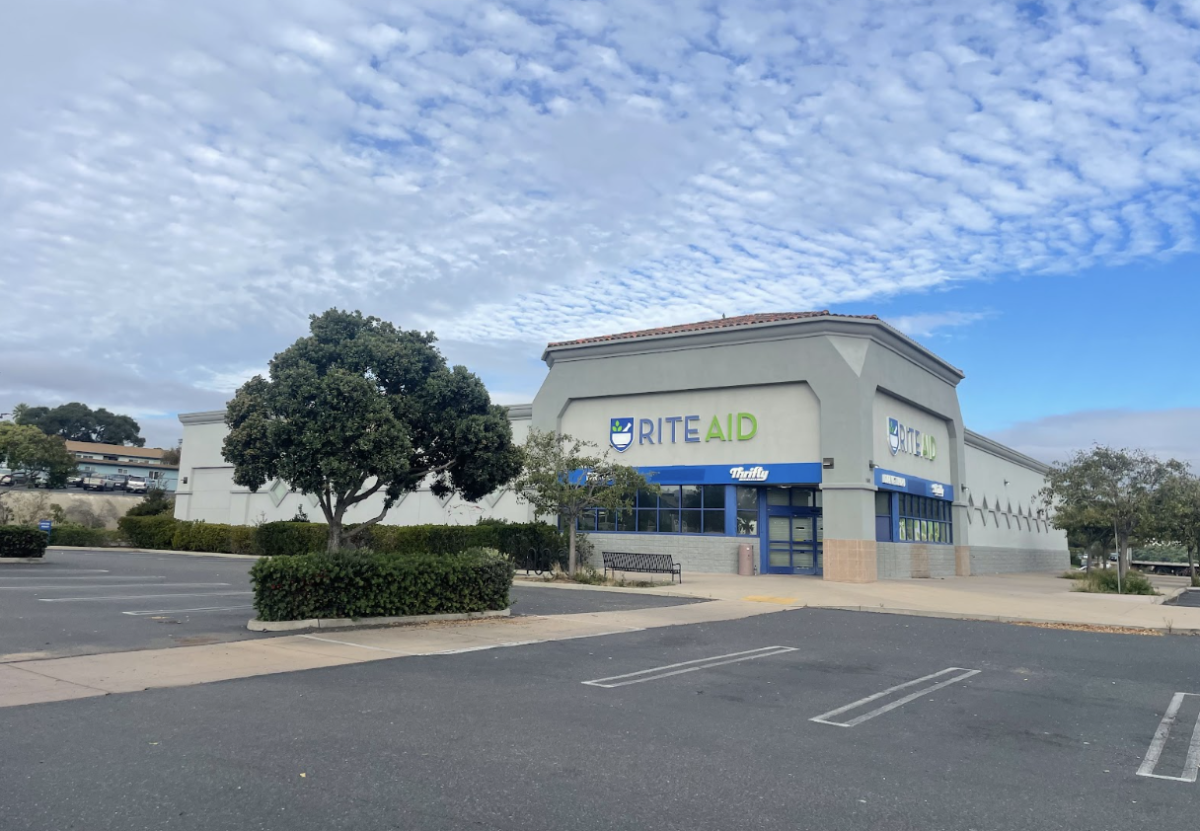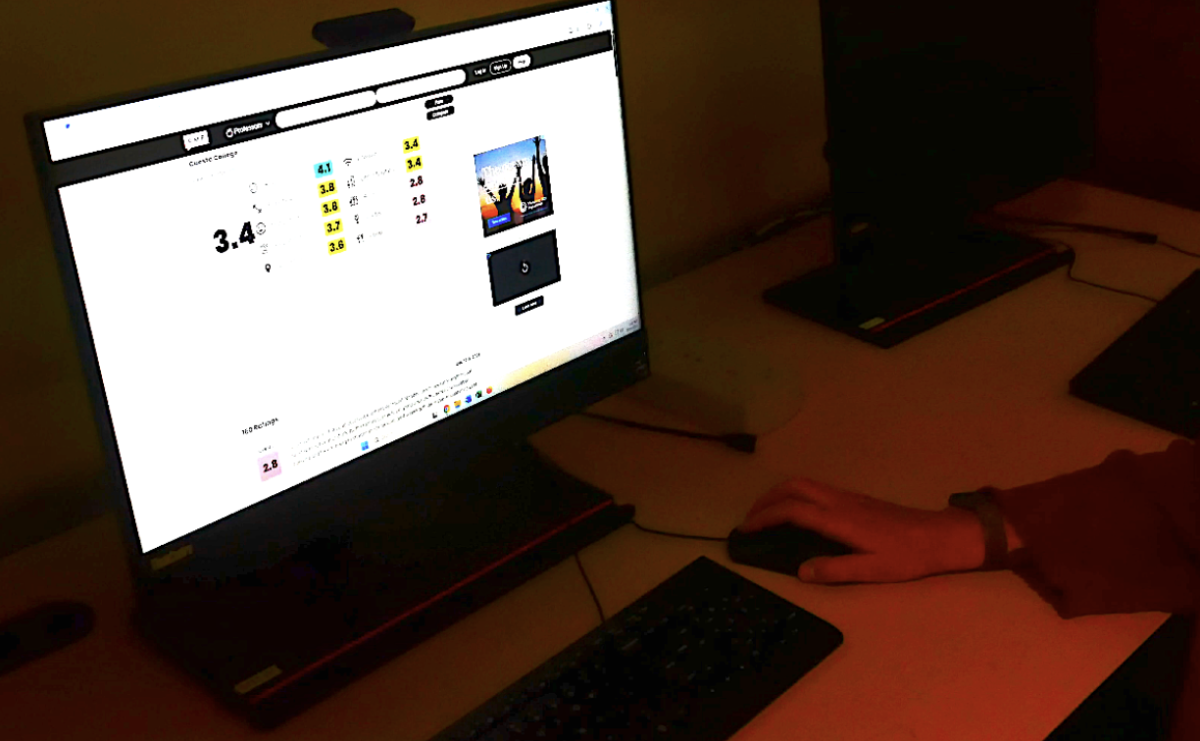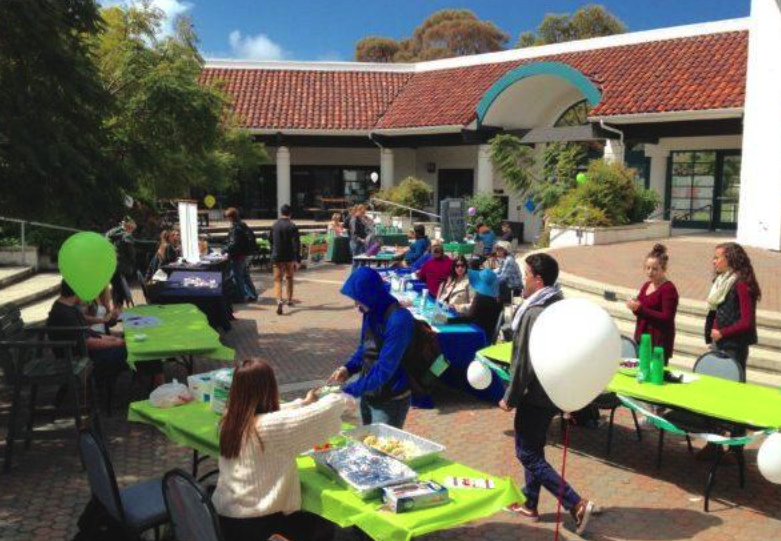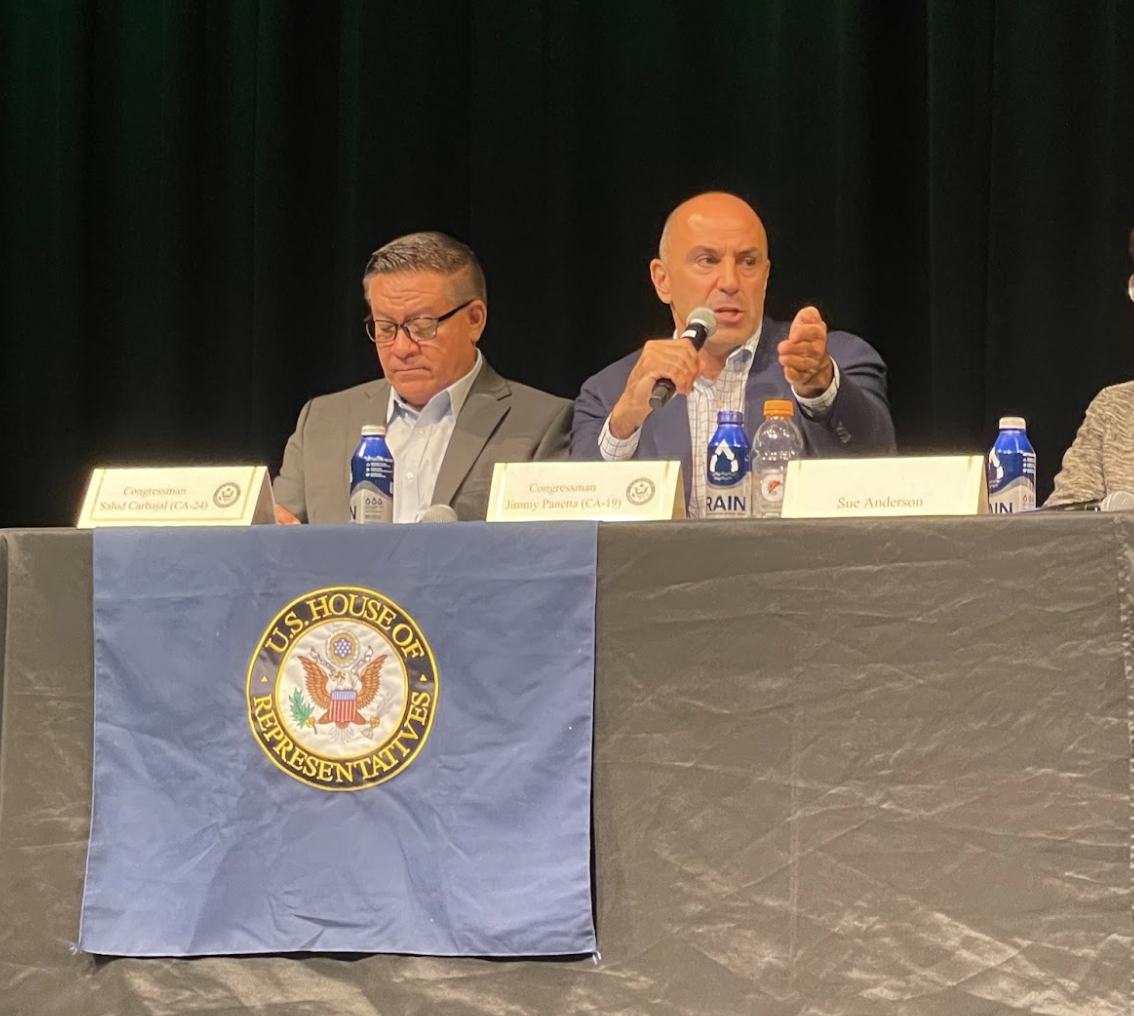Nonprofits across the country are feeling the sting of the Trump Administration. The Chronicle of Philanthropy reports that 14,000 jobs have been lost in the nonprofit sector since January, and that number is climbing. However, San Luis Obispo County nonprofits face more challenges than federal funding as the state reports a $12 billion dollar deficit and the county reports a deficit to the general fund almost double of last year’s $15.6 million deficit. Government funded programs across the county are being reevaluated and scaled back. Some local nonprofits that rely on government grants are already seeing losses to funding and others are preparing for such a loss.
Community Action Partnership of San Luis Obispo (CAPSLO) has been helping people on the Central Coast for over 60 years with over 26,000 persons served. They run programs to eliminate poverty and help people achieve economic self-sufficiency by addressing the causes of poverty and empowering individuals and families. They run over 26 programs that serve the local community, ranging from childcare, shelters, health services and helping people connect to and navigate resources available to them.
Early on in his presidency, Donald Trump announced that he would cut funding nationwide for the Head Start Program, one of CAPSLO’s biggest programs that focuses on early childhood education and childcare. “We know nationwide 200,000 letters were sent to the Capitol urging people to not touch Head Start because it impacts so many families,” said Loren Leidinger, CCAP, CFRE, Outreach and Development Director at CAPSLO, who also said that everything will remain unclear until the federal budget is passed and announced. “We receive about 80% of our funding directly, or indirectly, from the federal government,” Leidinger said. “That funding supports different levels and different percentages of various programs we offer in the county.”
CAPSLO has asked every program head to propose a budget that cuts about 20% to 50% of their current budgets in anticipation of federal budget cuts.
To raise private donations, CAPSLO just launched its gift catalogue for the first time and distributed it through the community. The catalogue shows donors what their money is going to, pricing out the sponsorship of everything from toys for children at the $50 price range, supporting the warming center’s costs for $250, or even sponsoring a client’s move-in costs for $5,000. They are also, for the first time in their 60-year history, planning a large fundraising event. “We’ve never really done a fundraising event,” Leidinger said. “We’re going to do a community music event.” They have not signed a contract for the event but hope to host it in October.
Lumina Alliance, formerly RISE and Headstrong, helps victims of sexual and intimate partner violence in SLO County. They advocate for survivors and their families by offering services like a crisis line, temporary housing, therapy and legal support, all for free. In 2023, 2,156 calls were received on the 24/7 crisis and information line, and they provided over 17,000 services to their clients.
Lumina is facing the potential of losing up to 50% of its budget as most of its funding comes from federal grants that have either been stopped or put on hold. A significant part of their funding comes from the US Justice Department Office on Violence Against Women. “The administration put out a document that says that in order to apply, the CEO of the organization has to sign off on a bunch of different executive orders that they will comply with,” said April Cole of Lumina Alliance. These executive orders include eliminating DEI and cooperating with ICE by allowing them to raid shelters, which Cole pointed out has never been allowed before.
Because these executive orders don’t align with the mission of Lumina Alliance, they have declined signing and applying for these grants. But even without cosigning the orders, their effect is felt as the crisis line “saw a sharp decrease in Spanish-speaking communities reaching out because of fear of survivors somehow being entered into a database that could then be reported to ICE,” Cole said.
Lumina just launched the Light the Way campaign that aims to raise over 5 million in the next three years by reaching out to community partners and donors. This is the first time they have launched a campaign on such a large scale. The campaign, among many things, aims to advocate for survivors as they face increasing social and financial challenges.
Another local nonprofit, Transitions Mental Health Association (TMHA), is not facing any budget cuts from the federal level, but is facing a potential loss of funding to one of their biggest programs, which has been around for over 41 years, Growing Grounds Farm and Nursery, from SLO County’s general fund, which is facing a shortfall. Growing Grounds is a wholesale nursery and retail shop that provides socialization opportunities, paid employment and soft job skills training for adults with severe mental health issues. The program serves 80 client employees each year. Approximately 90% of program participants experienced increased housing stability and had no additional visits to the Psychiatric Health Facility once they entered the program. Last week, TMHA sent out an emergency bulletin to ask the community for their support to save the Growing Grounds program either by donating or contacting the Board of Supervisors of SLO County on their behalf. “We’ve never really sent out an SOS message like that before, and let’s face it that’s what it was,” said Michael Kaplan, the Community Engagement Director at TMHA. “People seem to be responding. We are getting a lot of donations. It’s really moved the needle in some way.”
Other than the threat to Growing Grounds from the county, Kaplan says that the biggest threat to their programs is California Prop 1, which passed in 2024 and changed the Mental Health Services Act of 2004, or the HSA, to the Behavioral Health Services Act, or the BHSA. Prop 1 did not cut or increase any funding, but shifted where the already allocated money may be spent. Many of TMHA’s services are contracted from government programs such as SLO County’s Department of Behavioral Health and Santa Barbara County’s Department of Behavioral Wellness. These funding avenues are being affected by Prop 1 as the counties reallocate money from those programs, mostly to new housing projects. Despite the changes not being officially enacted until June 2026, TMHA is already feeling the effects of the proposition as programs are losing funding. Kaplan says one of his roles is to constantly be searching for alternative funding streams and grants. “We are talking nonstop about what we might be doing on a program by program level,” Kaplan said. “There’s more we don’t know than we do know. There are a lot of scenarios we talk through.”
The GALA Pride and Diversity Center, which is based in SLO, provides resources and support to people of all sexual orientations, gender identities and expressions by offering a safe meeting place with a resource library, support groups, social events, and fundraising for other local LGBTQIA+ organizations. A survey in 2023 found that 62% of transgender students in SLO County seriously considered suicide, which is a much higher rate than the 53% of California transgender students who strongly considered suicide. GALA aims to close this gap and create safe places in SLO County for the LGBTQIA+ youth and adults.
While GALA never has relied on federal grants, they originally felt a sense of relief at the beginning of the year. “However, as time has gone on, we have started to see how things have trickled down and federal money that was going through other agencies we went to, started to dwindle and disappear,” said Aja Milne, the Vice President of the Board of Directors.
Due to ongoing budget issues, GALA had to rework the duties and salaries of two significant employees in January. After those employees moved on, GALA ran on volunteers only for several months until being able to rehire the positions this month.
Milne says that they are focusing their efforts significantly on fundraising, not just for Pride, but year round. They are having a lot of success with targeted fundraising, asking people to support a certain cost. They have had people “Sponsor a Pizza Party” for one of its youth group meetings, where the private donation provides food for the students in attendance. “This allows the community to know specifically how they are helping, because that’s driving a lot of people right now,” Milne states, “They want to know where the money is going and how it is working for the folks who really need it.”
Whether they are already losing money, or preparing to, SLO county nonprofits are trying new avenues of fundraising to make up for current and future losses to their budgets. They all say they will keep their doors open, no matter what. But according to Milne, the question remains: “How do we serve more with less?”
















